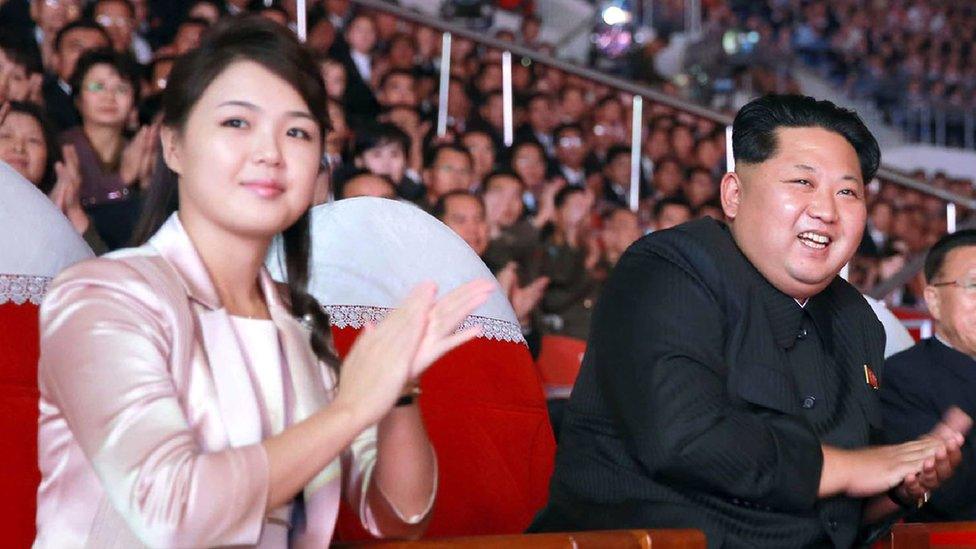S Korean envoys 'to take message from Kim to US'
- Published
Kim Jong-un welcomes South Korean officials
South Korean envoys will bring a private message to the US from North Korean leader Kim Jong-un when they meet in Washington later this week, according to reports.
They were given the undisclosed message on Monday when meeting Mr Kim in rare talks in Pyongyang, local media say.
It is not clear whether the envoys will meet US President Donald Trump.
Previous US talks with North Korea have come to nothing and there has been no comment from Pyongyang itself.
It has also been agreed that the two Koreas' leaders will meet at a summit in April for the first time in more than a decade, and the first since Mr Kim took power.
South Korea's head of national security Chung Eui-yong and intelligence agency chief Sun Hoon met North Korea's reclusive leader during a two-day trip that ended on Tuesday.
Mr Kim clearly expressed his country's willingness to talk with Washington and to pause weapons testing while this happens, Mr Chung told reporters on Tuesday.
"We cannot reveal everything to the media but we do have additional views of North Korea we will relay to the United States when we visit the US," he said, according to South Korean news agency Yonhap.
Donald Trump responded cautiously to news that North Korea is willing to talk about giving up its nuclear weapons.
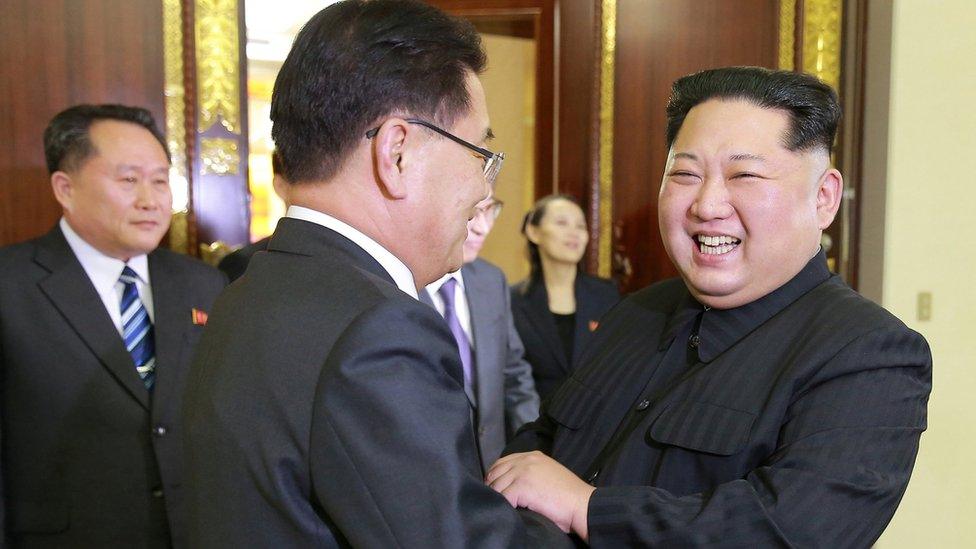
Kim Jong-un was pictured welcoming delegates from the South to a dinner on Monday
What's the secret message?
South Korean officials have been vague and careful with their diplomatic language following their first ever meeting with Mr Kim.
It is not clear if they are embellishing the message's significance, or who the private message is addressed to.
The US state department said on Tuesday it is in touch with the White House about a proposed meeting with the South Korean envoys, Reuters reported.
It appears both Koreas are trying to capitalise on eased tensions after the 2018 Pyeongchang Winter Olympics, which saw them march together under one flag.
How did we get here?
Mr Trump said the recent rhetoric coming out of North and South Korea was "very positive" in the wake of the two nations' rare meeting.
The North's KCNA news agency reported Mr Kim had "warmly welcomed" the delegates on Monday.
The next day, South Korean officials said their neighbours were willing to discuss giving up nuclear weapons if the regime's safety was assured.
The US president said he believed Pyongyang's offer to hold denuclearisation talks was "sincere", but also said it was "because of the sanctions and what we're doing with respect to North Korea."
Allow X content?
This article contains content provided by X. We ask for your permission before anything is loaded, as they may be using cookies and other technologies. You may want to read X’s cookie policy, external and privacy policy, external before accepting. To view this content choose ‘accept and continue’.
The US slapped fresh sanctions on the communist nation this week following its conclusion that Mr Kim's half-brother was killed by a chemical attack in Malaysia on the orders of the North Korean government.
The US has consistently accused North Korea of being behind the attack on Kim Jong-nam. North Korea however denies any involvement.
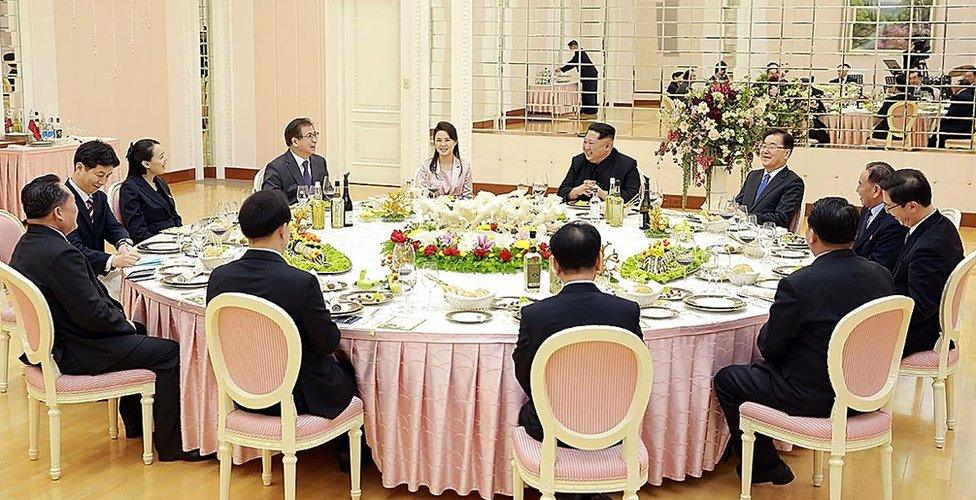
This was the first meeting between South Korea officials and Mr Kim since he came to power in 2011
Why is North Korea acting now?
It is difficult to be certain. Since the South made the announcement, there has been no comment from North Korea.
Some US and South Korean officials have said that Pyongyang may simply be trying to buy time to develop weapons programmes.
There have also been suggestions that Mr Kim is trying to soften the impact of biting sanctions on the impoverished country, seeking food and other aid from overseas.
Another factor may be growing diplomatic pressure from North Korea's neighbours, particularly from China - the regional superpower and Pyongyang's only real ally.
What has gone wrong with other talks in the past?
A series of six-party talks have been held since North Korea decided to withdraw from the Nuclear Non-Proliferation Treaty (NPT) in 2003.
But attempts to negotiate aid-for-disarmament deals have repeatedly failed.
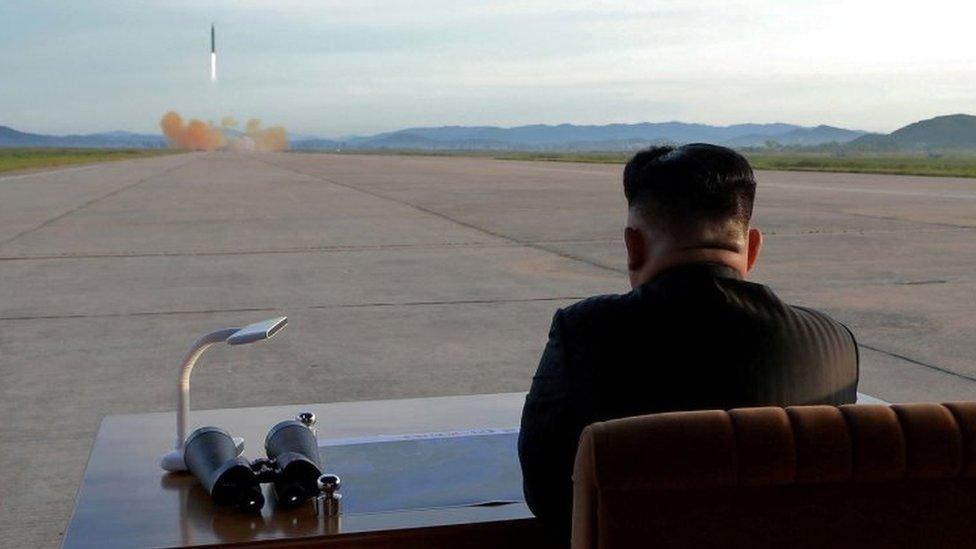
North Korean leader Kim Jong-un watches the launch of a Hwasong-12 missile
In 2009, North Korea pulled out of the talks and expelled all nuclear inspectors from the country, in response to UN Security Council criticism of a rocket launch. Pyongyang also vowed to resume its nuclear activities.
A number of bids to restart the talks collapsed, including in 2012 when North Korea launched another rocket, two weeks after announcing a "leap day" agreement with the US.
The North said it was commemorating the birth of its founding father with a new satellite, but the launch was condemned by others as a provocative test of missile technology.
Throughout 2017 Mr Kim ordered a series of incendiary ballistic missile tests, significantly raising the stakes.
In response the UN implemented increasingly tough sanctions.
- Published28 February 2018
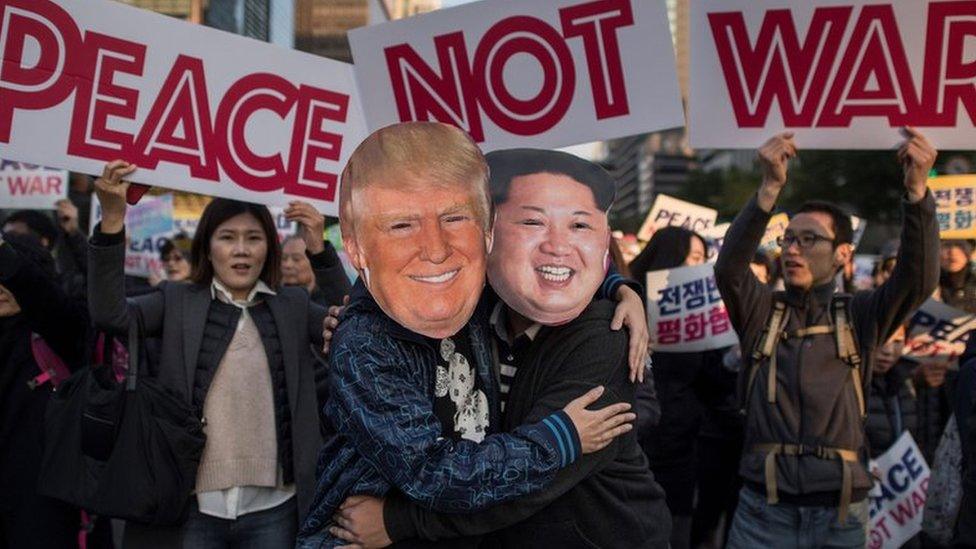
- Published20 February 2018
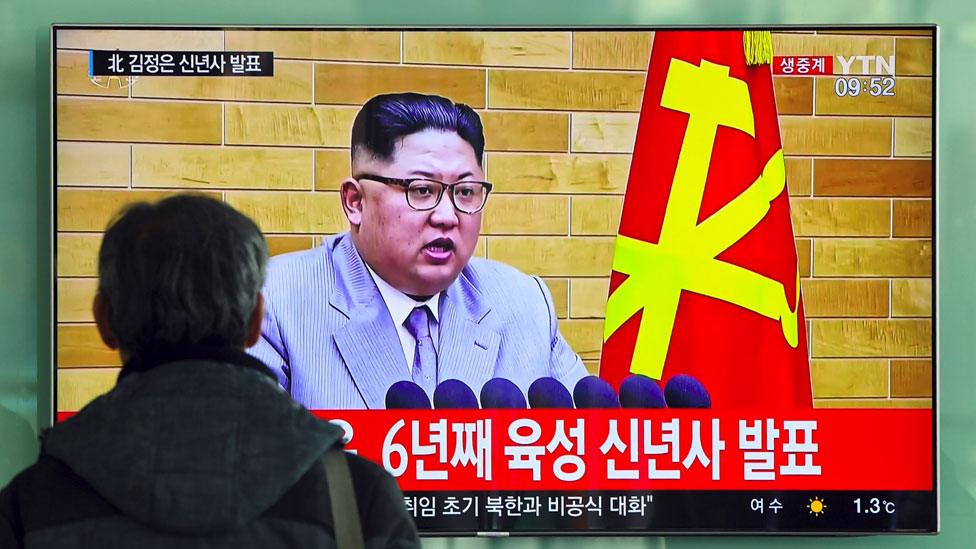
- Published25 February 2018
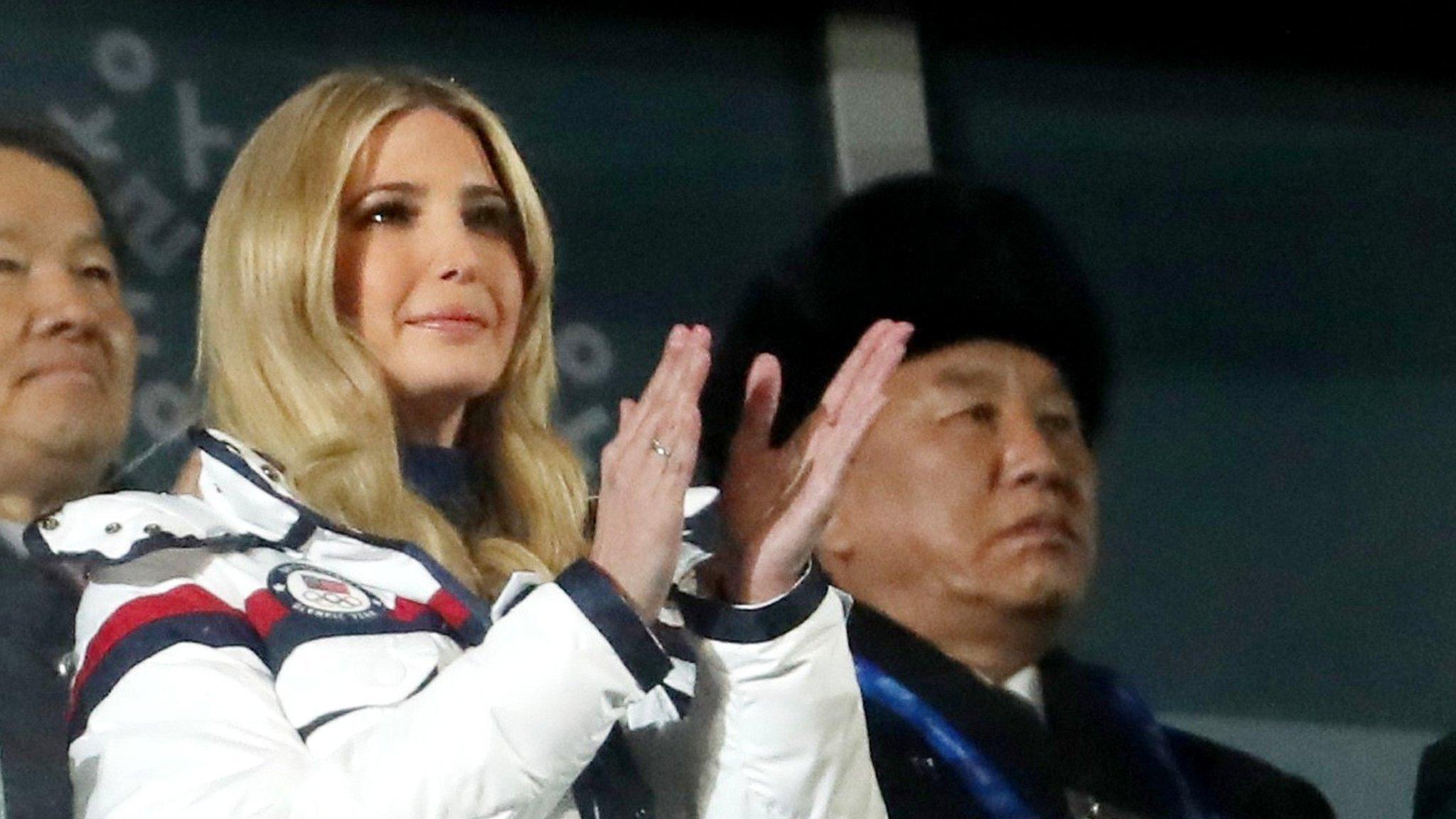
- Published7 February 2018
